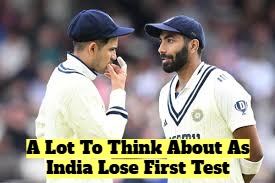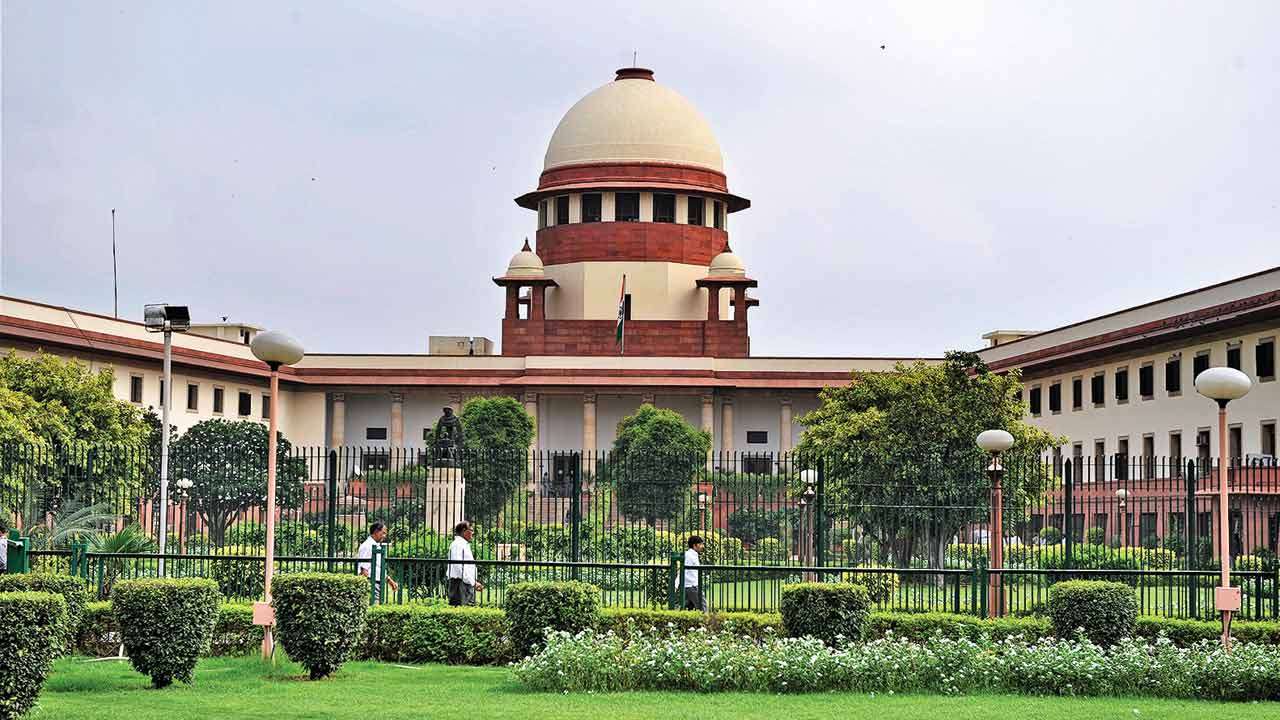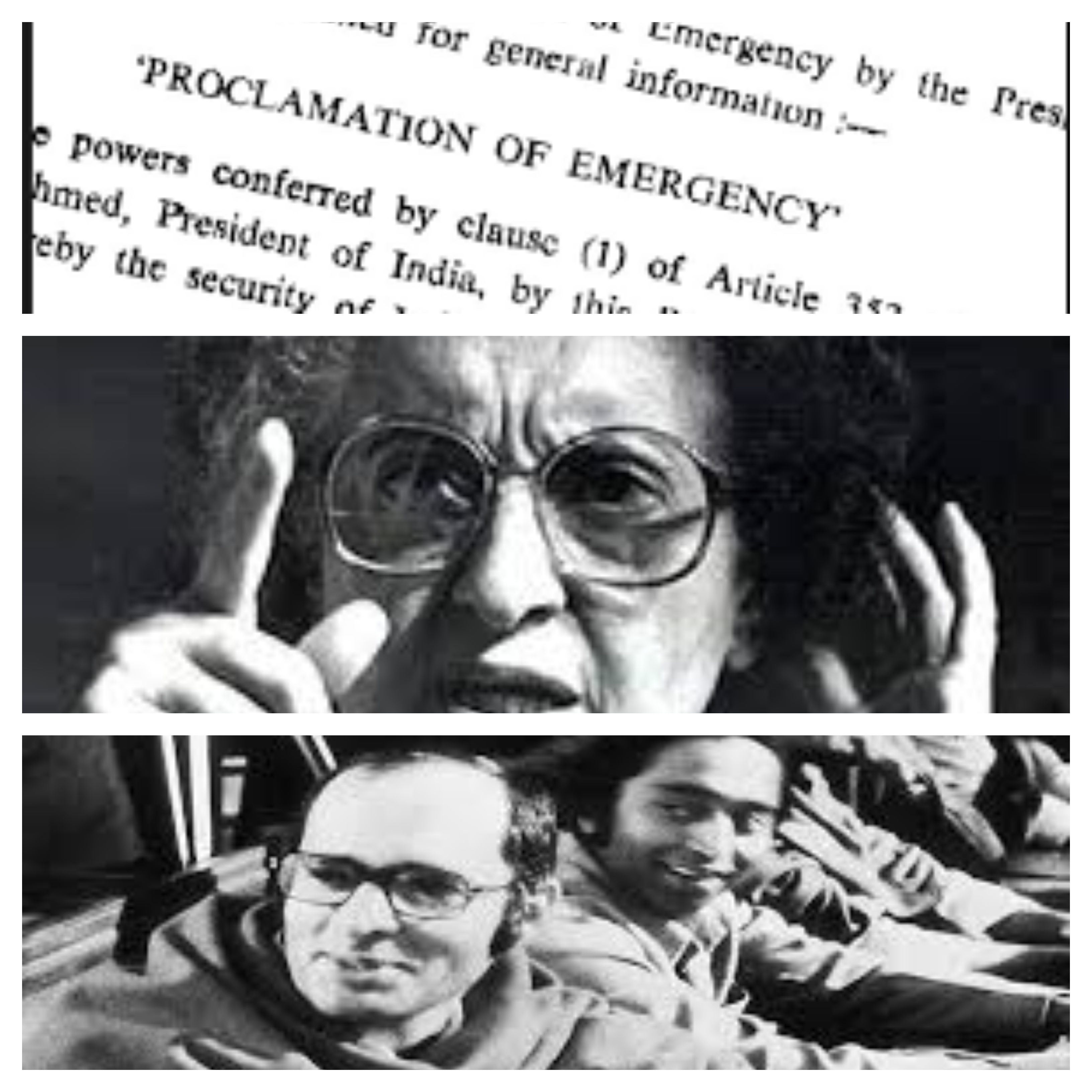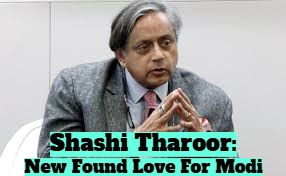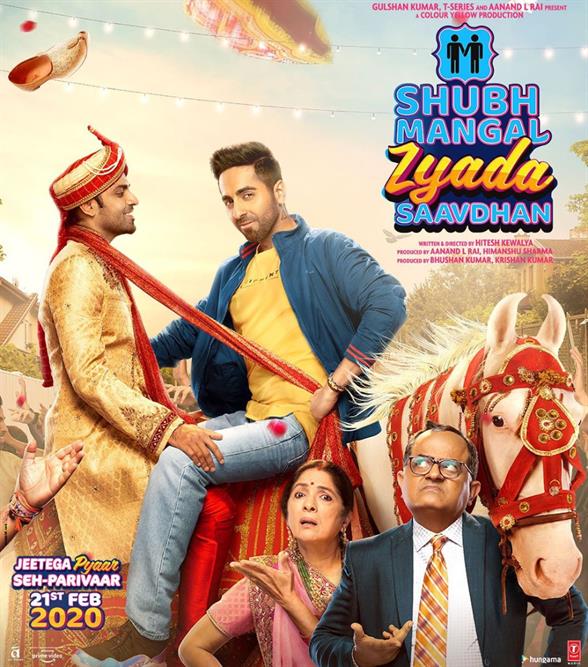

By Sunil Garodia
First publised on 2020-02-24 11:42:25
Ayushmann Khuranna confirmed his status as the most bankable star in Mumbai right now with his eighth straight hit in Subh Mangal Zyada Savdhan, a rollicking comedy about gay love and the way family and society reacts to it. Khuranna, as Kartik, aces the role of a person who has come to terms with his sexuality and now wears it on his nose as a ring, but Jitendra Tiwari as Aman is not far behind. They display amazing chemistry and are naturals, even in the kissing scenes. Their hugs and looks for each other will give an inferiority complex to the battery of heroines now riding high on the big screen in the Hindi cinema.
The villain in this story is the attitude of the family to treat any deviant sexual behavior as a curse or a disease. When Aman's parents (played exceptionally well by Gajraj Rao and Neena Gupta who have their own beautiful on-screen chemistry after Bahdhai Ho) discover that he is gay, they first call a purohit to perform his kriyakaram and namkaran simultaneously to kill the 'bad' soul and give it a new birth so that he becomes 'straight'. Later, they think of getting it treated by doctors, with his mother saying that since science has made rapid advances, there must be a 'cure' for this too. At no time do they consider the fact that a man can be in love with another man and that it is not a disease or a curse.
In a wonderful scene that shows the insecurities of the middle class when faced with such dilemmas, Aman's parents discuss how they will confine their son to a life of torture and unhappiness if they marry him off to a girl. The mother tells him that they are 'bad' people. The father says that no, they are not 'bad' people they are just people. What is left unsaid but understood is that as people, they have to conform to societal rules and traditions. The beauty of the scene is lost in the written description and it has to be seen for its magic to be understood.
Writer-director Hitesh Kewaliya knew he had a very thin storyline. Hence, he wove in a few goofy, small-town characters and sub-plots (which look out of place individually but help in taking the story forward while being immensely funny and entertaining). The supporting cast is an amazing ensemble with each actor performing above par. Since the story is largely confined to the drama unfolding in the house, the director does not capture Allahabad on screen but the characters get the small-town milieu perfectly and the dialogue helps it in no small measure.
The scene which captures what the director wants to say plays out in an auto-rickshaw when Aman's chacha is tasked with throwing Kartik out of Allahabad by making him board a train out of the city. The chacha asks Aman when he thought of becoming 'yeh'. The trouble he has in uttering the word beautifully captures the way small-town people (and most in the so-called 'progressive' cities) fail to understand such sexual behavior. Kartik tells him that the correct word is gay. Kartik also asks him a counter-question that when did the chacha thought about not being gay. The chacha replies that it happens from birth and when Kartik gives him a meaningful look, he gets the answer to his original question. He concedes that Kartik has a point. But how many in the audience will get the answer, and when?
